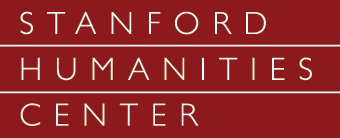Multimedia
Recent Videos
Stanford on iTunes University
"Grave Reform in Modern China” harnesses humanities scholarship and digital tools to analyze and narrate the story of funeral reform and grave relocation.
From "furry creatures in drag" to wild animals in cities, two Stanford historians discuss the evolution and social implications of human-animal relationships.
From buying local to competitive eating, two Stanford scholars discuss the performance, politics, gender issues and historical implications of food production and consumption.
From novels, comics and latino rock to Batman with a luchador mask, literary scholars Ramón Saldívar (Stanford) and Frederick Aldama (OSU) discuss how popular culture helps form our complex identities.
Stanford literary scholar Hans Ulrich Gumbrecht and NFL quarterback Andrew Luck discuss the pull of sports on our emotions and the beauty of athletic performance.
"The Literature of Crisis" explores different ways to think about the challenge of accommodating conflicting demands and values, how to make our choices "artfully," and how to use works of imaginative literature to inspire us.
While cultural-geographical terms such as "the Arabic world" and "the Islamic world" are used ubiquitously, many people remain uncertain where such "worlds" are and how the differ from each other.
This course introduces the viewer to African-American history, with particular emphasis on the political thought and protest movements of the period after 1930, focusing on selected individuals who have shaped and been shaped by modern African-American struggles for freedom and justice. CLayborne Carson is a professor in the History Department at Stanford University.
Printer, journalist, postmaster, scientist, inventor, diplomat, patriot, and tireless founder of civic institutions, Benjamin Franklin was the most versatile of the Founders—even more so than Jefferson. He was as famous as Washington in his day and his classic autobiography, with its celebration of the bourgeois virtues, is the only American autobiography of the 18th century that is still widely read today. Even the French loved him.
Virgil's "Aeneid" became a school text immediately when it was composed over two thousand years ago, and has remained central to studies of Roman culture to the present day. How can a poem created in such a remote literary and social environment speak so eloquently to subsequent ages? In this course we will discover what kind of poem this is and what kind of hero Aeneas is.
Hannibal's courage, cunning and intrepid march across the dangerous Alps in 218 BCE with his army and war elephants make for some of the most exciting passages found in ancient historical texts. The mystery of his exact route is still a topic of debate.
Presentations include Lessons from the Greeks, Why Athens and Rome Matter More than Ever, Epicureanism and Virgil.
Featured authors include David Mamet, David Kennedy, Robert Sutton, Wallace Stegner, Marina Warner and Leonard Susskind.
Subjects include democracy, the American Dream, and infinity. Featured discussants include Arun Gandhi, the Dalai Lamam Richard Rorty and Kenneth Taylor.
Jack Rakove, Pulitzer Prize–winning historian and Stanford historian, recruited a team of scholars from across the country to discuss the individual lives and collective acts that turned the thirteen colonies into a national republic.
English has the world’s largest vocabulary—leading many of us to have greater than average difficulty with words, and some of us to have greater than average curiosity about words. Our historical and linguistic study will cover both erudite and everyday English, with special attention to word meaning and word use, to both rules and exceptions.
The show, airing Tuesdays at 5:00 pm on KZSU - 90.1 Stanford University Radio, is a conversation with a special guest about select topics or authors about which he or she is especially entitled to an opinion. Past guests include Orhan Pamuk, Paul Ehrlich, Richard Rorty, Shirley Hazzard, Andrei Linde, Rene Girard, Michel Serres, and many others.
This course explores how issues of race, class, faith and gender have shaped the candidates, campaigns, and our society. Our analysis spans the presidential race from the announcements of more than ten presidential hopefuls to the competition between Senators McCain and Obama.
Subjects include commentary on religious and spiritual topics by speakers including Reza Aslan, the Dalai Lama, Bart Ehrman and Christopher Hitchens among them.
This one-day symposium covered the history and legacy of international campaigns to end Apartheid in South Africa.
Subjects include African-American history, Hannibal, Thomas Jefferson, the Crusades and early modern Russia.
Subjects include Robert Frost, Sherlock Holmes, Paul Laurence Dunbar. Author interviews include Tobias Wolff, Dana Gioia, Rene Girard and Diane Middlebrook.
Subjects include Your Brain on Art, Shakespeare, Hawaiian music and the globalization of the arts.
The major themes of this course include the origins of the American Revolution, its impact on the general population, and the significance of the social and political history of this era for our conceptions of American nationhood.


































